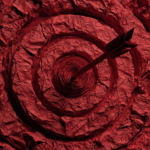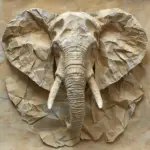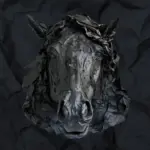There's a moment every tactically-minded athlete knows too well. You've prepared for weeks. You've studied the opponent, mapped out scenarios, built contingency plans for every possible situation. But as competition approaches, your mind starts racing through those same scenarios again. And again.  The Duelist (IOTA) sport profile experiences performance anxiety differently than other personality types because their greatest strength, strategic preparation, can become the source of their psychological unraveling.
The Duelist (IOTA) sport profile experiences performance anxiety differently than other personality types because their greatest strength, strategic preparation, can become the source of their psychological unraveling.
Unlike athletes who feel nerves as pure adrenaline or physical tension, Duelists face a uniquely cognitive form of competition anxiety. Their internal  Drive and tactical nature create a specific type of pre-competition stress that centers on intellectual readiness rather than physical capability. Understanding this distinction changes everything about how these athletes should approach anxiety management.
Drive and tactical nature create a specific type of pre-competition stress that centers on intellectual readiness rather than physical capability. Understanding this distinction changes everything about how these athletes should approach anxiety management.
The Duelist's Unique Relationship with Performance Anxiety
Most athletes experience sports anxiety as butterflies, racing heart, or restless energy. The Duelist's experience looks different. Their performance anxiety manifests as an endless mental loop of strategic questioning. Did I analyze every tendency? What if they adjust their approach? Have I accounted for all variables?
This creates a paradox. The meticulous preparation that defines the IORA personality type, the very process that builds their confidence, can spiral into overthinking paralysis. A tennis player might review opponent patterns so thoroughly that they second-guess their initial tactical reads. A wrestler might map out so many counter-sequences that they freeze when deciding which to deploy.
The anxiety isn't about lacking skill. It's about the intellectual fear of being outsmarted, of facing a scenario they didn't anticipate. That core vulnerability drives their pre-game nerves in a direction other sport profiles rarely experience.
Why Strategic Athletes Face Different Competitive Stress
The Duelist's opponent-focused nature means their confidence is tied directly to how well they've decoded their competition. When facing an unpredictable opponent or a situation that defies their prepared scenarios, their mental framework starts to crack. This isn't general nervousness. It's the specific terror of intellectual inadequacy.
Consider a chess prodigy before a major tournament. They're not worried about forgetting how pieces move. They're anxious about whether their opening preparation covers all variations, whether they've studied enough endgame positions, whether their opponent has found a theoretical novelty they missed.
This explains why Duelists often struggle more with competitive stress against reactive, instinctive opponents than against other tactical competitors.  The Flow-Seeker (ISRA) who plays purely on feel becomes a nightmare scenario because they can't be analyzed systematically. There's no pattern to decode, no tactical puzzle to solve in advance.
The Flow-Seeker (ISRA) who plays purely on feel becomes a nightmare scenario because they can't be analyzed systematically. There's no pattern to decode, no tactical puzzle to solve in advance.
Their alone-focused  Social Style compounds this challenge. While
Social Style compounds this challenge. While  The Captain (EOTC) might find comfort in team support or
The Captain (EOTC) might find comfort in team support or  The Motivator (ESTC) thrives on external encouragement, the Duelist isolates during preparation. That independence serves them well during analysis but leaves them alone with their anxiety spirals when those intrusive thoughts begin.
The Motivator (ESTC) thrives on external encouragement, the Duelist isolates during preparation. That independence serves them well during analysis but leaves them alone with their anxiety spirals when those intrusive thoughts begin.
The Overthinking Trap: When Preparation Becomes Paralysis
The tactical cognitive approach that makes Duelists brilliant strategists creates a specific vulnerability to analysis paralysis. A basketball player might spend so much time studying defensive tendencies that they become rigid during actual play, unable to adapt when those patterns shift. Their anxiety management challenge isn't calming physical symptoms, it's breaking the cycle of endless mental preparation.
This manifests in three distinct ways:
- Pre-competition review loops: Constantly re-analyzing prepared strategies instead of trusting the work already done
- Scenario multiplication: Creating increasingly unlikely "what if" situations that demand contingency plans
- Confidence erosion: Each additional review session reveals new potential gaps, undermining belief in preparation adequacy
A golfer with this personality type might walk through their yardage book dozens of times before a round, questioning every club selection strategy. A martial artist might drill counter-techniques until they're so conscious of every option that they can't react fluidly. The preparation that should build confidence instead feeds doubt.
Physical Symptoms with a Cognitive Source
While Duelists experience performance anxiety as primarily mental, it produces physical symptoms that confuse many athletes. They feel the tension, the disrupted sleep, the loss of appetite common to competition anxiety. But the root cause differs from other sport profiles.
 The Maverick (IORA)'s anxiety comes from questioning whether they can execute under pressure.
The Maverick (IORA)'s anxiety comes from questioning whether they can execute under pressure.  The Superstar (EORC) worries about meeting external expectations. The Duelist's physical tension stems from unresolved intellectual questions. Their body responds to mental uncertainty about tactical preparedness.
The Superstar (EORC) worries about meeting external expectations. The Duelist's physical tension stems from unresolved intellectual questions. Their body responds to mental uncertainty about tactical preparedness.
This means standard anxiety reduction techniques often miss the mark. Deep breathing helps manage symptoms but doesn't address the cognitive loop driving the response. Progressive muscle relaxation calms the body but leaves the strategic mind still racing through scenarios. These athletes need approaches that specifically target the overthinking pattern, not just the physiological manifestation.
Competition Day: When Analysis Meets Reality
The hours before competition reveal the Duelist's anxiety patterns most clearly. While reactive athletes like  The Sparkplug (ESRC) use distraction and high energy to manage nervous before competition feelings, Duelists often retreat deeper into analysis. They review notes one more time. They visualize scenarios again. They mentally rehearse adjustments.
The Sparkplug (ESRC) use distraction and high energy to manage nervous before competition feelings, Duelists often retreat deeper into analysis. They review notes one more time. They visualize scenarios again. They mentally rehearse adjustments.
This creates a critical vulnerability window. The internal drive that usually fuels their preparation becomes a source of doubt. Questions multiply: Is my game plan sound? Have I overlooked something obvious? What if they've changed their approach since my last analysis?
A swimmer might obsessively review their race strategy, questioning pace decisions they'd confidently made weeks earlier. A fencer might second-guess their tactical priorities minutes before bout. The closer competition gets, the more their prepared confidence erodes under the weight of unresolvable uncertainty.
Unlike The Strategist who finds comfort in collaborative tactical discussion, the Duelist's alone-focused nature means they process this anxiety in isolation. There's no teammate to reality-check their spiral, no coach they readily trust with their intellectual doubts. The same independence that makes them self-sufficient in analysis leaves them vulnerable when that analysis turns destructive.
Breaking the Anxiety Pattern: Strategies for Tactical Minds
Managing nerves as a Duelist requires approaches specifically designed for strategic personalities. Standard sports psychology advice about "staying present" or "trusting your training" often fails because it doesn't address the unique cognitive pattern driving their anxiety.
The most effective approach involves structured preparation closure. Set a definitive endpoint for tactical analysis, perhaps 48 hours before competition. After that cutoff, no new scenario planning, no additional opponent review, no further strategic adjustments. This gives the analytical mind a concrete boundary instead of an endless preparation runway.
Create a pre-competition tactical summary: a single page or card with your core game plan and three primary adjustments. This document represents your complete strategic preparation. When anxiety-driven impulses push you toward more analysis, return to this summary instead. The constraint forces trust in work already completed.
Develop scenario confidence anchors for overcoming anxiety. Instead of preparing for every possible situation, identify your three most likely scenarios and one "chaos protocol" for everything else. This gives your tactical mind structure while preventing the endless branching of contingency plans that feeds anxiety.
Physical rituals help break mental loops. A short, consistent warm-up routine signals your mind to shift from preparation mode to execution mode. The ritual becomes a circuit breaker between analysis and performance, creating clear psychological separation.
The Trust Challenge: Moving from Analysis to Execution
The deepest anxiety management athletes challenge for Duelists involves trusting that preparation is sufficient. Their tactical excellence comes from never assuming they've considered everything. But competition demands transitioning from analytical completeness to confident execution despite inevitable uncertainty.
This requires reframing what "ready" means. For tactical athletes, ready doesn't mean having every answer. It means having a robust strategic framework that can adapt to unexpected developments. A boxer doesn't need to predict every combination their opponent throws, they need core defensive principles that work against multiple threats.
The Tactician sport profile shares some of this challenge but handles it differently through their external drive and validation. They find confidence in measurable preparation benchmarks. The Duelist must develop internal metrics for preparation adequacy that satisfy their strategic mind without requiring impossible completeness.
Consider setting analysis quotas rather than open-ended preparation. Study opponent footage for exactly 10 hours across two weeks. Develop precisely five tactical scenarios. Create exactly three backup plans. The constraints prevent endless preparation while ensuring systematic coverage.
Competitive Pressure: The Double-Edged Sword
Paradoxically, some Duelists find that mental performance pressure during actual competition reduces their anxiety. Once the match starts, the endless preparation questions become irrelevant. There's only the chess match unfolding in real time, the strategic puzzle revealing itself through actual play.
This explains why some tactical athletes seem nervous beforehand but completely composed during competition. The transition from uncertain preparation to concrete execution resolves the anxiety's root cause. They're no longer wondering if they're ready, they're simply responding to the situation as it develops.
However, this only works when the Duelist can shift from planning mode to adaptive execution mode. Athletes who remain locked in analytical thinking during competition struggle twice over: they face both the pre-competition anxiety and the inability to execute fluidly when it matters.
Training this transition requires practice competing in unprepared situations deliberately. Enter scrimmages with minimal scouting. Play matches where you intentionally limit your preparation time. This builds confidence in your ability to think strategically on the fly, reducing the anxiety that stems from fearing unprepared scenarios.
Building Anxiety Resilience for Strategic Athletes
Performance stress management for Duelists isn't about eliminating their analytical nature. That strategic mind is their competitive advantage. The goal is preventing analysis from becoming obsessive, keeping preparation productive rather than anxiety-inducing.
Develop metacognitive awareness of your preparation patterns. Notice when tactical analysis shifts from confident refinement to anxious questioning. That shift signals the point of diminishing returns where additional preparation begins feeding doubt rather than building readiness.
Create structured debriefs after competition that satisfy your analytical needs without spiraling into excessive post-mortems. Identify three tactical adjustments worth noting, then close the analysis. This gives your strategic mind the pattern recognition it craves while preventing the endless rumination that breeds anxiety about future competitions.
Build a small trusted circle for tactical reality-checking despite your alone-focused tendencies. Find one coach or training partner who understands strategic analysis and can confirm when your preparation is objectively sound. This external perspective helps interrupt anxiety loops your isolated mind can't break alone.
The Duelist's relationship with competition nerves will always carry a cognitive dimension other sport profiles don't experience. The question isn't whether you'll analyze and prepare, that's your nature. The question is whether that analysis serves your performance or undermines it. Managing that distinction separates strategic brilliance from overthinking paralysis.
Discover Your Sport Personality
This article explores one of 16 profiles. Find out which one you are and unlock a personalized blueprint for your athletic journey.
Take the Free TestYour Tactical Mind as Competitive Advantage
Understanding how Duelists experience performance anxiety differently reframes the challenge entirely. Your pre-game nerves aren't a weakness to eliminate. They're a signal that your strategic mind is engaged, processing competition variables, seeking tactical clarity. The goal isn't silencing that analytical voice but giving it productive boundaries.
The athletes who master this balance become formidable competitors. They harness their tactical nature for thorough preparation while avoiding the overthinking trap. They trust their strategic framework while maintaining adaptive flexibility. They honor their opponent-focused drive while preventing it from breeding anxiety about the unknowable.
Your anxiety feels different because your approach to competition is different. Where reactive athletes trust instinct and tactical collaborators trust their team, you trust your analysis. When that analysis feels incomplete, anxiety fills the gap. But recognition of this pattern gives you the tool to manage it: structured preparation boundaries that satisfy your strategic mind without feeding endless doubt.
The intellectual challenge that defines your athletic identity will always carry some psychological weight. Competition against worthy opponents should feel mentally demanding, that's what makes victory meaningful. The work is distinguishing productive strategic tension from destructive anxiety spirals, keeping your tactical brilliance sharp without letting it cut you down.
This content is for educational purposes, drawing on sport psychology research and professional experience. I hold an M.A. in Social Psychology, an ISSA Elite Trainer and Nutrition certification, and completed professional training in Sport Psychology for Athlete Development through the Barcelona Innovation Hub. I am not a licensed clinical psychologist or medical doctor. Individual results may vary. For clinical or medical concerns, please consult a licensed healthcare professional.




